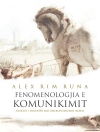The dramatic power of the dialogues of Plato appears to diminish as the metaphysical interest of them increases (compare Introd. to the Philebus). There are no descriptions of time, place or persons, in the Sophist and Statesman, but we are plunged at once into philosophical discussions; the poetical charm has disappeared, and those who have no taste for abstruse metaphysics will greatly prefer the earlier dialogues to the later ones. Plato is conscious of the change, and in the Statesman expressly accuses himself of a tediousness in the two dialogues, which he ascribes to his desire of developing the dialectical method. On the other hand, the kindred spirit of Hegel seemed to find in the Sophist the crown and summit of the Platonic philosophy—here is the place at which Plato most nearly approaches to the Hegelian identity of Being and Not-being. Nor will the great importance of the two dialogues be doubted by any one who forms a conception of the state of mind and opinion which they are intended to meet. The sophisms of the day were undermining philosophy; the denial of the existence of Not-being, and of the connexion of ideas, was making truth and falsehood equally impossible. It has been said that Plato would have written differently, if he had been acquainted with the Organon of Aristotle. But could the Organon of Aristotle ever have been written unless the Sophist and Statesman had preceded? The swarm of fallacies which arose in the infancy of mental science, and which was born and bred in the decay of the pre-Socratic philosophies, was not dispelled by Aristotle, but by Socrates and Plato. The summa genera of thought, the nature of the proposition, of definition, of generalization, of synthesis and analysis, of division and cross-division, are clearly described, and the processes of induction and deduction are constantly employed in the dialogues of Plato. The ‘slippery’ nature of comparison, the danger of putting words in the place of things, the fallacy of arguing ‘a dicto secundum, ‘ and in a circle, are frequently indicated by him. To all these processes of truth and error, Aristotle, in the next generation, gave distinctness; he brought them together in a separate science. But he is not to be regarded as the original inventor of any of the great logical forms, with the exception of the syllogism…
Plato
Sophist [EPUB ebook]
Sophist [EPUB ebook]
Beli ebook ini dan dapatkan 1 lagi GRATIS!
Bahasa Inggris ● Format EPUB ● ISBN 9781531288556 ● Ukuran file 0.8 MB ● Penerbit Ozymandias Press ● Diterbitkan 2016 ● Diunduh 24 bulan ● Mata uang EUR ● ID 6175234 ● Perlindungan salinan tanpa












